Floristic diversity and effect of anthropogenic activities on human-dominated grasslands in subtropical regions of Peninsular India
DOI:
https://doi.org/10.17138/tgft(4)8-18Abstract
Indian subtropical grasslands are secondary habitats formed due to anthropogenic activities resulting in degradation of deciduous forests. Spread throughout Peninsular and Central India, they are important from economic and ecological points of view and are the prime source of fodder for the large population of livestock in this region. Pastures are either exposed to open grazing or protected and harvested periodically for fodder. In the present investigation floristic diversity of 21 sites from Western Ghats and Central India was studied, along with the effects of anthropogenic activities like burning and grazing on floristic composition in general and palatable species in particular. Over-grazing and burning were found to result in dominance of unpalatable species, making the grasslands less useful for livestock production. High rainfall and protection by local communities seem to play important roles in the dominance of palatable species in grasslands. Our results suggest that periodic harvesting and protection from burning and over-grazing should be encouraged and implemented in order to increase the potential of these grasslands for livestock production. Detailed studies are warranted to confirm these findings.
Keywords: Burning, community protection, grazing, palatable species, pastures.
DOI: 10.17138/TGFT(4)8-18



